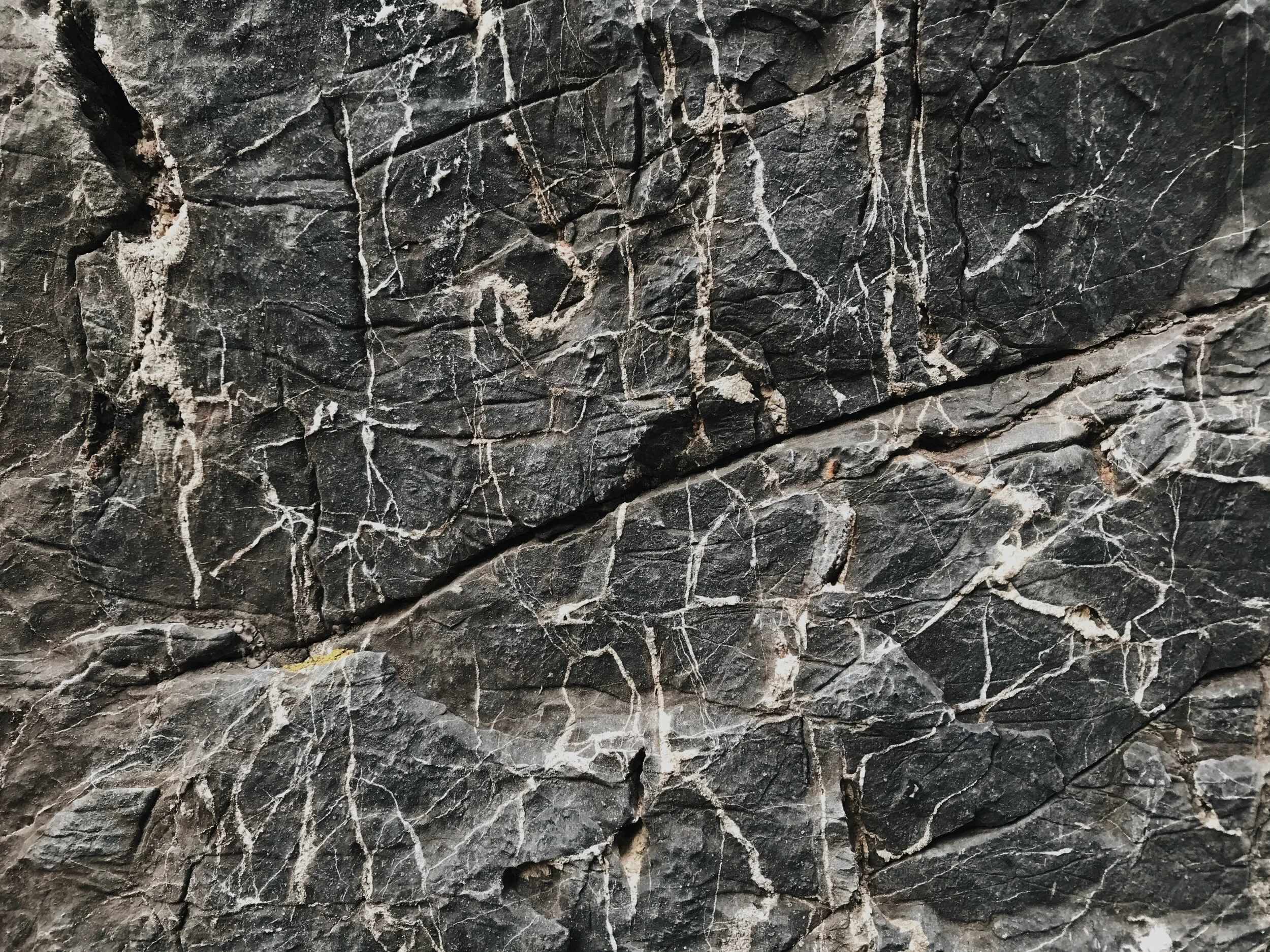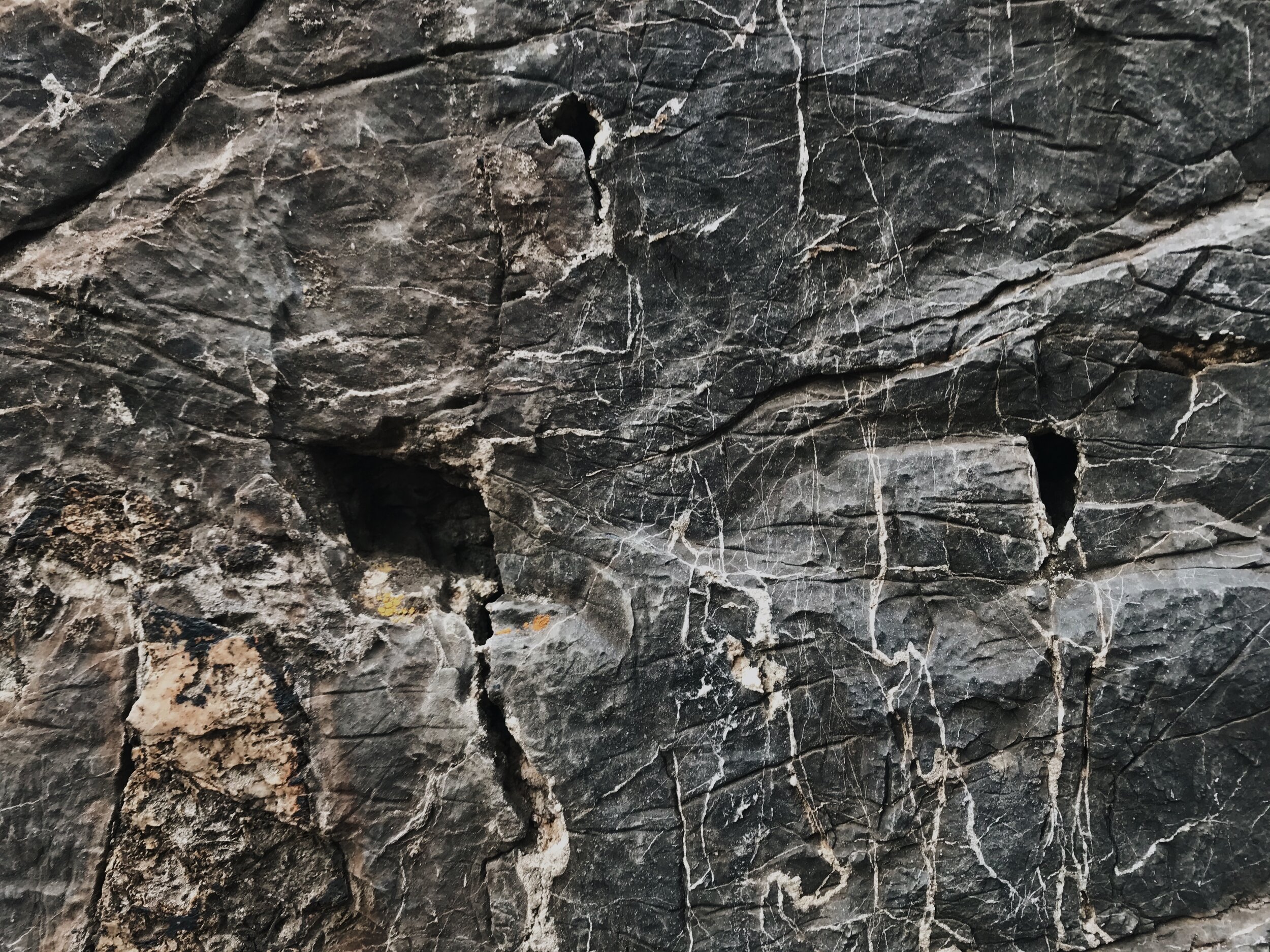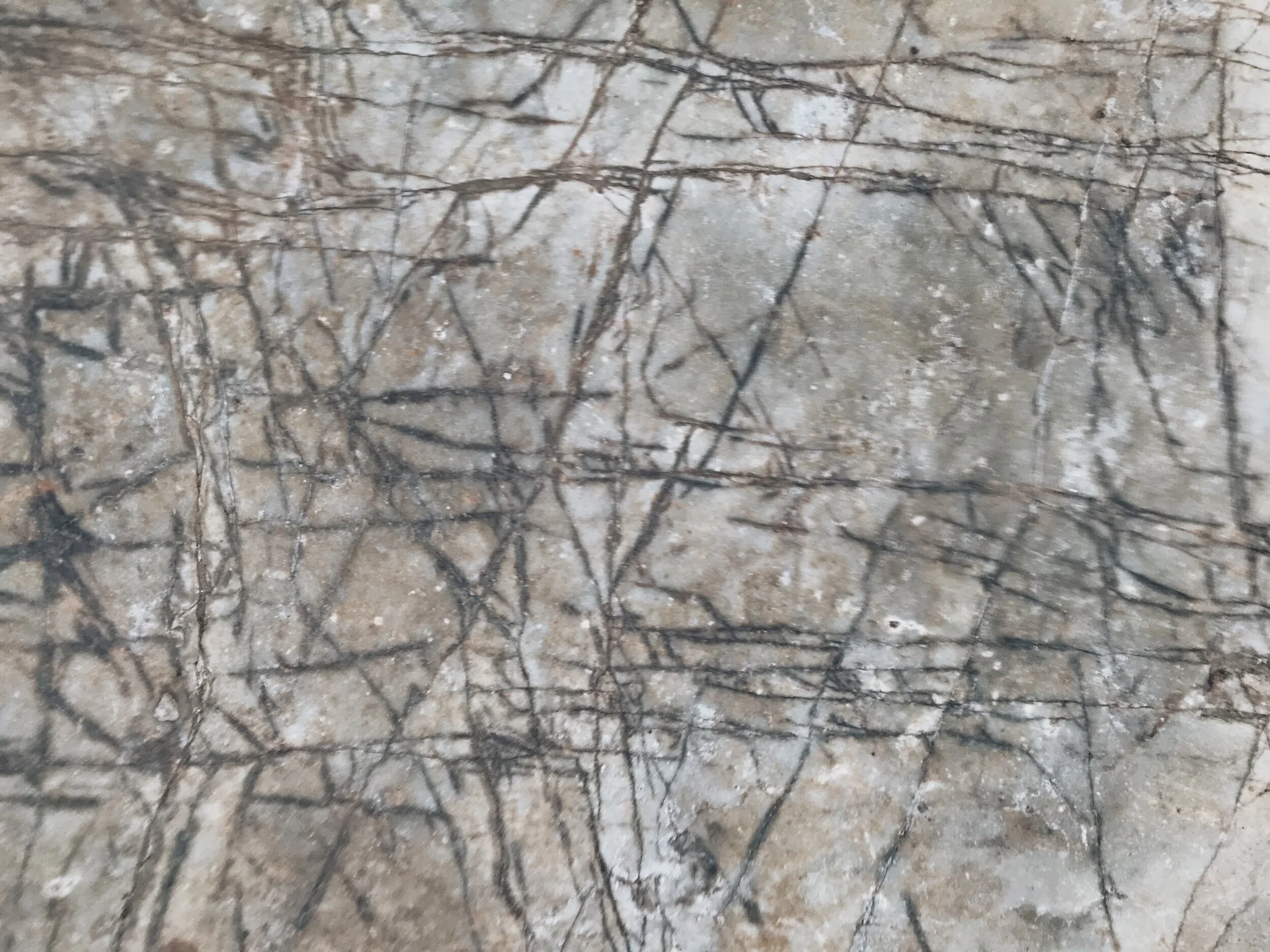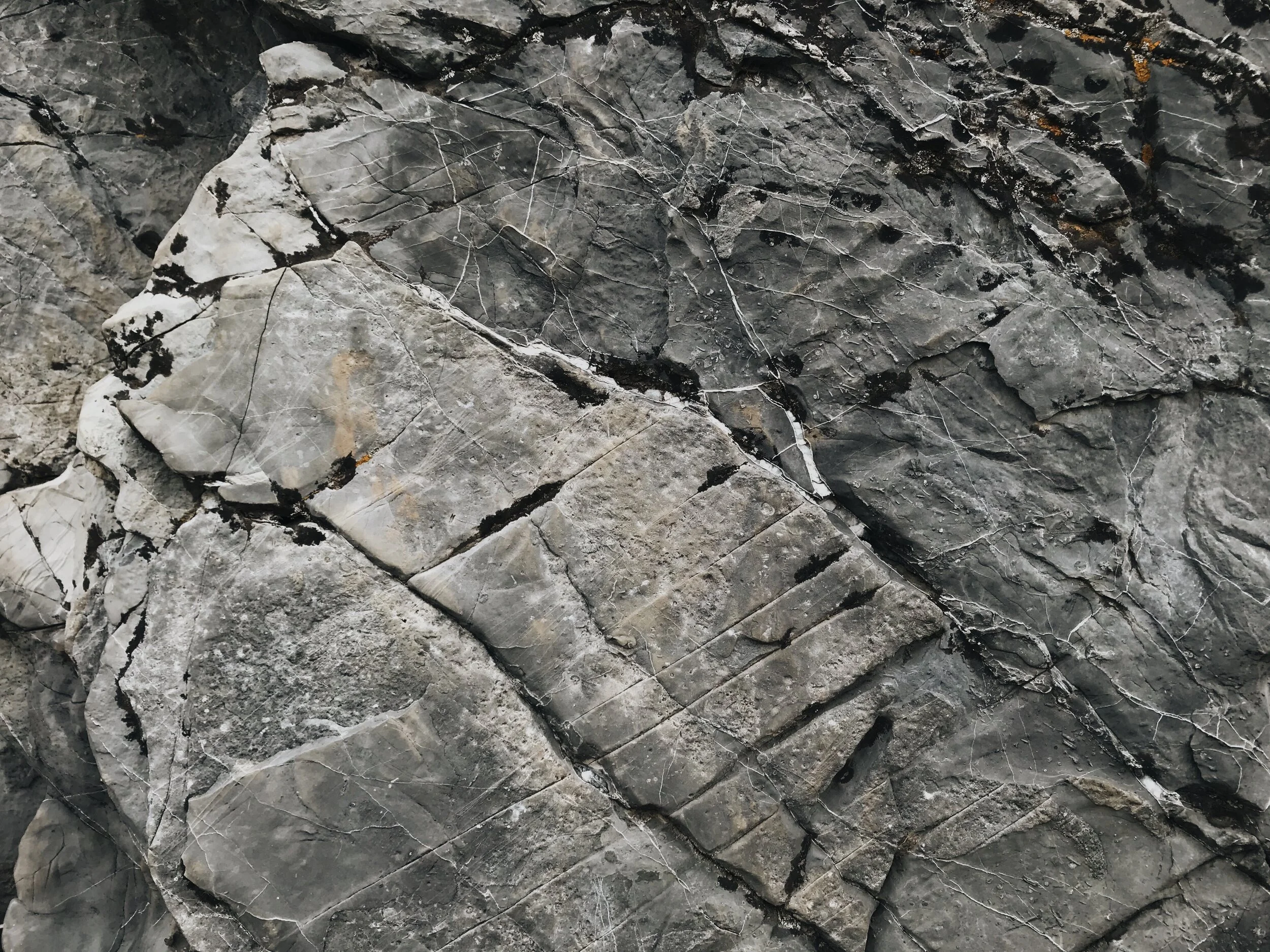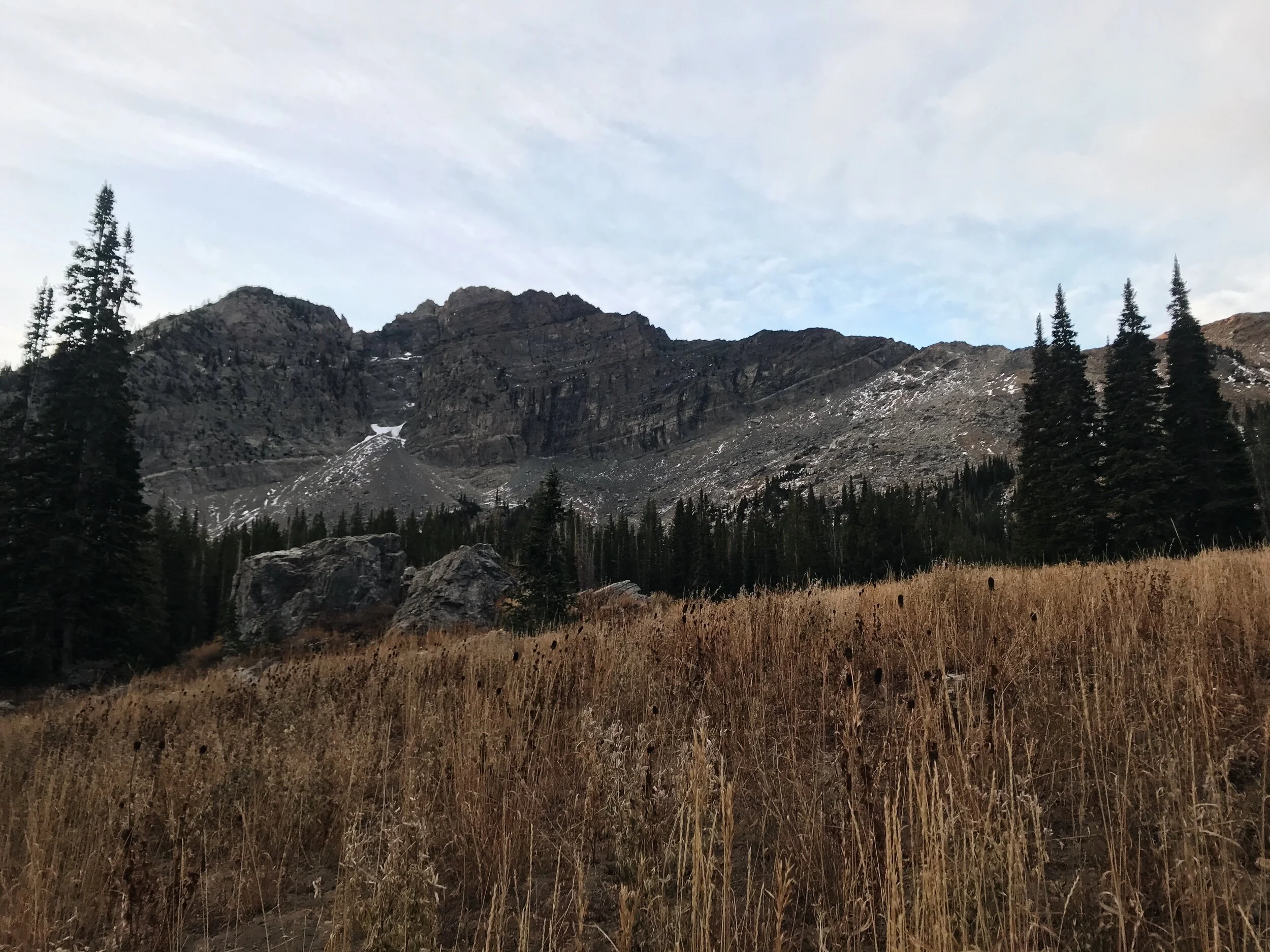The Marks of A Pulse: The Devil's Castle
There are etchings in the boulders in the belly of the mountain basin where The Devil’s Castle casts a subtle and entrancing shadow. The etchings in the boulders are veins where watery fluids carried new minerals through the rock, some precious to humans as they mined into the deep to make their fortunes for a brief time in the 19th century before they exhausted the silver in their Albion Basin--Albion an old Celtic name for Britain. For home. A strange thing to name a place for home and yet, vampire-like, rid the mountain veins of their life-force that had been pulsing for thousands of years. They must have been homesick, desperate to soothe their grief and longing for Albion, for Britain, with dreams of riches found deep in the mountain. We still underestimate our symptoms of homesickness and our feverish desperation to distract ourselves with wealth accumulation--a counterfeit remedy for the longings of a land, culture, identity, and sense of belonging.
These veins in the boulders are markings of a vital pulse that summon images in my memory that both fascinate and haunt me: first, I think of witches’ marks in some of Britain’s medieval stone churches; then I remember my grandmother’s transparent white hands and the pronounced tributary of veins as death began to ease her across a threshold. The witches’ marks: apotropaic symbols to keep evil away. Evil. Perhaps a curse. An unnatural curse that disrupts the natural course of a life, and delivers illness and death too soon or with violence unnecessary. My grandmother’s hands. The etchings of veins, of life force, more pronounced than ever as death came and sat beside her as watched her for days, witness to her life and her passing. I sang a 19th century American folk song to her while I held her yielding hand:
The latest sun is sinking fast, my race has nearly run
My strongest trials now are past, my triumph is begun
O come Angel Band, come and around me stand
O bear me away on your snow white wings to my immortal home
O bear me away on your snow white wings to my immortal home
I know I'm near the holy ranks of friends and kindred dear
I've brushed the dew on Jordan's banks, the crossing must be near
I've almost gained my Heavenly home, my spirit loudly sings
The Holy ones, behold they come, I hear the noise of wings
To my immortal home. To the land that the miners left that might as well be heaven in some distant, untouchable realm. Where the land and sea was familiar--perhaps like a family member in my nostalgia-prone imagination. And yet, family status does not prevent our desperate vampire behavior. This I realize. The miners in the American West might have just as frantically mined their own vital land in the realities of famine and societal upheaval as religion and politics were at the root of injustice. The miners were seeking life. Living unrestrained. They arrived in a strange land, making it easier to pursue quick remedies--there was no time to get to know the land, to cultivate a relationship. Living had to happen now, and the etchings in the boulders revealed treasures beneath.
Albion Basin, in the Wasatch Mountains. Wahsatch. A Ute word meaning “low place in high mountains.” I attempted to find the indigenous word for Albion Basin. The internet turned up nothing. And so, next week, I will search the university library on a campus that bears the name, like this state, of the Ute tribe*: the University of Utah. How did the Ute tribe relate to this mountain hollow, this Albion Basin? Surely they knew of the silver pulsing through its veins. What were the familiars of the relationship between tribe and the basin? Between tribe and The Devil’s Castle? I am skeptical that the etchings in the boulders did not signify the same evil presence to the tribe that the immigrant miner’s perceived. And yet, the modern Ute tribe is just as reliant on mining as the rest of us have become as they, too, rely economically on the mining of their land. I, the daughter of immigrants, who reoriented our relationship with western desert land from one of partnership to one of domination.
The etchings in the boulders leave no question in my mind that the mountain is alive. And the mountain is still magnificent as she bestows the remedies for my overwhelmed soul that must face daily a pace that is unnatural in a direction that I don’t care for. The mountain, the land, is resilient. As are we. We mirror each other like that. The etchings in the boulders are the markings we make on church walls and barn doors to ask for more life, more time. The etchings in the boulders are the veins in my grandmother’s hands that I remember with more and more clarity as I look down at my own aging hands. Will I too have the grace to surrender, to yield, to the natural course of a life? The etchings in the boulders are familiar. And so, the mountain has become family. I bring poetry to share with the mountain. I sing the same songs to the mountain that I sang to my grandmother. Most of all, I listen to the mountain. I pay attention. I give her my time and my devotion.
And, yes, I inherited the homesickness, the longing for Britain, for Albion. But I will do what I can to heal the marks left by the vampire-like behavior. I will accept the homesickness as a beautiful gift that keeps me in the longing, resisting the hustle of modern day life. In my veins, in the etchings of the boulders, I will see the life of the mountain is the life in me. These are the marks of a pulse, in the shadow of The Devil’s Castle.
*The Ute Indian Tribe encourages the University of Utah to use the Ute name for the University's sports programs with its full support. The University recognizes that the Ute name is at the core of the cultural identity of the Tribe and its members, and that it constitutes an inseparable element of their rich cultural traditions. The University is honored to be allowed to continue to use the Ute name with due respect and integrity.
The Ute Indian Tribe acknowledges that its association with the University of Utah- the flagship institution of higher learning in the state of Utah - raises tribal visibility and community awareness and generates a source of pride to members of the Ute Indian Tribe. The Tribe desires to reaffirm the long and valued relationship between the University and the Tribe to promote educational benefits for its youth.
